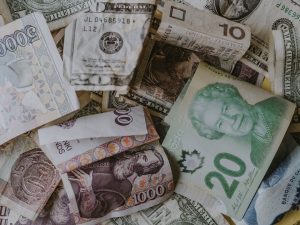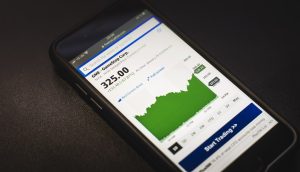Forex trading can be a lucrative and exciting endeavor, but it can also be confusing and overwhelming, particularly for beginners. One aspect of forex trading that can be particularly confusing is the concept of commissions, which are fees charged by brokers for facilitating trades. In this article, we will explain how commissions work in forex trading and what traders need to know to make informed decisions about their trading costs.
First, it is important to understand the different types of brokers in the forex market. There are two main types of brokers: market makers and ECN (Electronic Communication Network) brokers. Market makers are brokers that act as counterparties to a trader’s orders, meaning they take the opposite side of the trade. ECN brokers, on the other hand, facilitate trades between traders by matching buy and sell orders in a transparent marketplace.
The way commissions work in forex trading depends on the type of broker a trader uses. Market makers typically do not charge a commission, but instead make their money by adding a markup to the bid-ask spread (the difference between the buying and selling price of a currency pair). This markup is often referred to as the “spread” or “pips.” For example, if the bid price for EUR/USD is 1.1500 and the ask price is 1.1505, the spread is 0.0005 (or 5 pips). The market maker might add a markup of, say, 1 pip to the spread, making the actual spread 6 pips. This means that if a trader buys EUR/USD at 1.1505 and immediately sells it, they will receive 1.1500, losing 6 pips (or 0.0006) in the process.
ECN brokers, on the other hand, typically charge a commission for each trade, but offer tighter spreads than market makers. The commission is usually a fixed amount per lot traded (a lot is a standardized unit of currency), and can vary depending on the broker and the currency pair being traded. For example, a broker might charge $5 per lot traded for EUR/USD, meaning that for each trade of one lot (which is worth 100,000 units of currency), the trader would pay a commission of $5. This commission is in addition to the spread, which is usually much lower than what a market maker would offer.
So, which type of broker is better for forex trading? It depends on the trader’s preferences and trading style. Market makers can be a good choice for beginners or traders who do not trade frequently or in large volumes, as the markup on the spread is usually small and easy to understand. However, market makers may be less transparent and may have a conflict of interest, as they make money when traders lose money. ECN brokers, on the other hand, offer more transparency and tighter spreads, but may charge higher commissions and require larger minimum deposits.
In addition to understanding the different types of brokers and how they charge fees, traders should also be aware of other costs associated with forex trading. These can include overnight rollover fees (charged when a trade is held overnight), swap fees (charged when trading currencies with different interest rates), and inactivity fees (charged when a trader does not make any trades for a certain period of time). Traders should carefully read their broker’s fee schedule and account agreement to understand all of the costs associated with trading.
In conclusion, commissions are an important aspect of forex trading that can have a significant impact on a trader’s profitability. Understanding the different types of brokers and how they charge fees, as well as other costs associated with trading, is essential for making informed decisions about which broker to use and how to manage trading costs. By doing their research and carefully considering their options, traders can maximize their profits and minimize their costs in the competitive world of forex trading.





